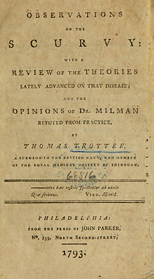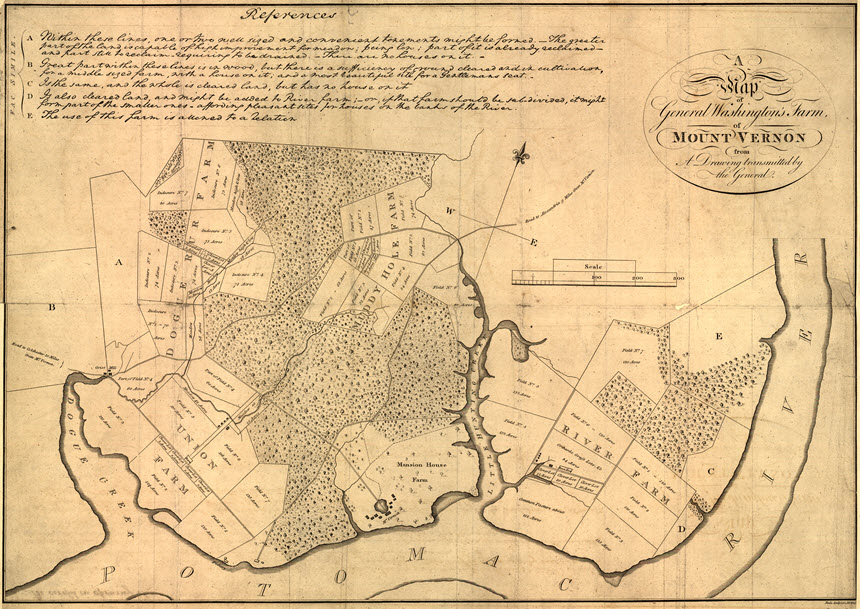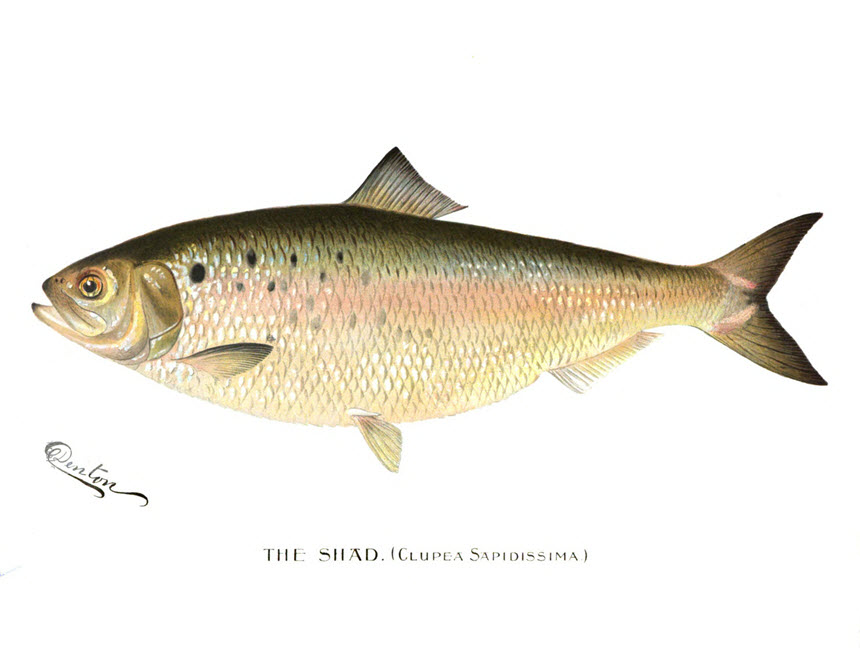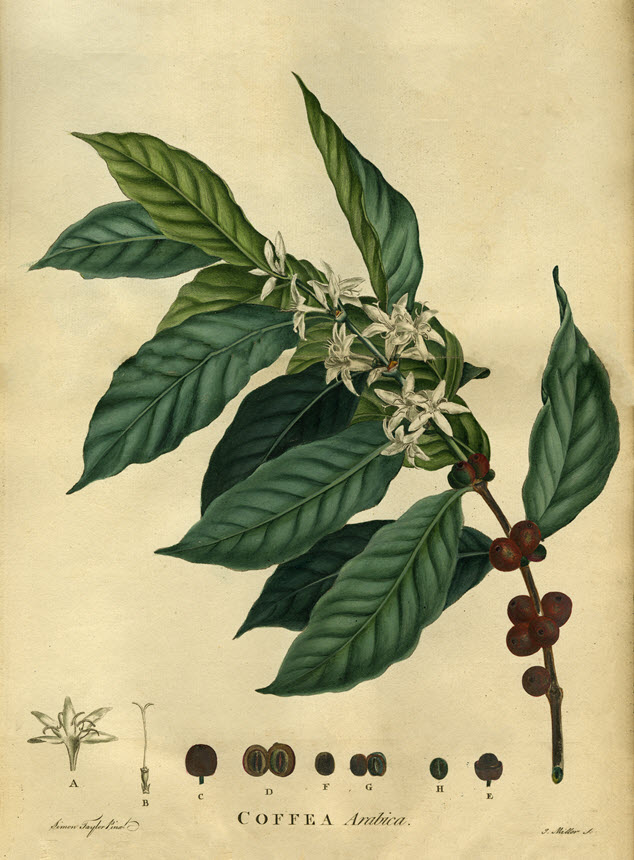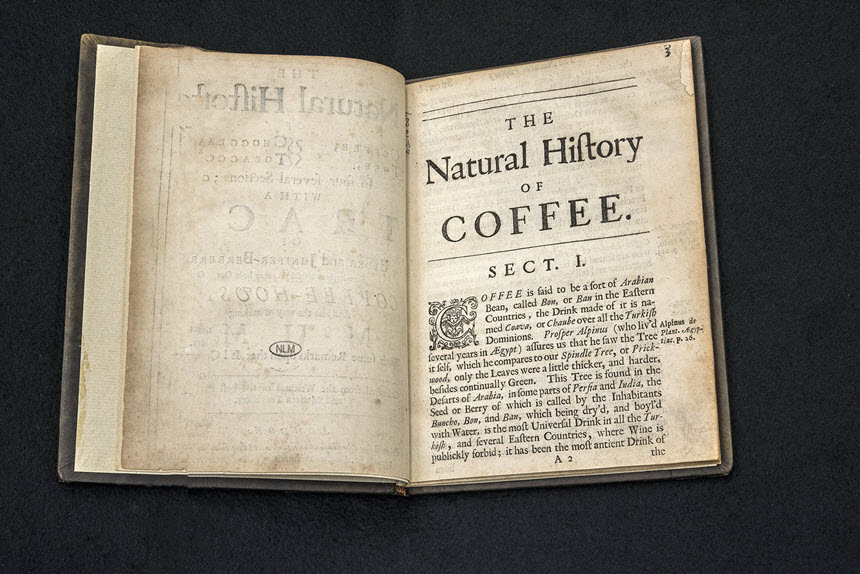Maritime spaces served as landscapes of power for colonists, but also provided unique opportunities for enslaved Africans to seek relative autonomy and freedom.
Rivers and waterways are important transportation routes and commerce centers. A mix of peoples and goods flowed along the Potomac River. Markets featured fish and other foods, and luxury goods like imported coffees.
European slavers transported a seemingly inexhaustible source of slave labor by sea and sold these men, women, and children on land.
A map of George Washington’s plantation, 1801
Courtesy Library of Congress, Geography and Map Division
Charleston, South Carolina slave auction advertisement, 1769
Courtesy American Antiquarian Society
Rivers to slavery and freedom
Slavers transported and sold men, women, and children into servitude along rivers and waterways. But waterways also provided transportation for those seeking to escape by secreting themselves aboard boats and steamships.
The Shad. (Clupea Sapidissima), Sherman Denton, ca. 1896
Courtesy HathiTrust
Shad for sale
The Potomac River was a lucrative source of trade and commerce. Slaves, when possible, used the informal economy to barter and exchange fish for other goods.
Plate illustration of coffee from An Historical Account of Coffee. ..., John Ellis, 1774
Courtesy National Library of Medicine
Stimulating slavery
Coffee (Coffea Arabica), can be traced back to Ethiopia. Merchants transported the plant by ship to the Caribbean. Widespread demand for the beans contributed to the rise of slavery and colonialism.
The Natural History of Coffee, Thee, Chocolate, Tobacco. ..., John Chamberlayne, 1682
Courtesy National Library of Medicine
Coffee’s cure
Some people believed coffee had medicinal benefits, especially in non-tropical climates: “where there is gross habit of Body, and a cold heavy Constitution, there Coffee may be proper, and successful; ...”



